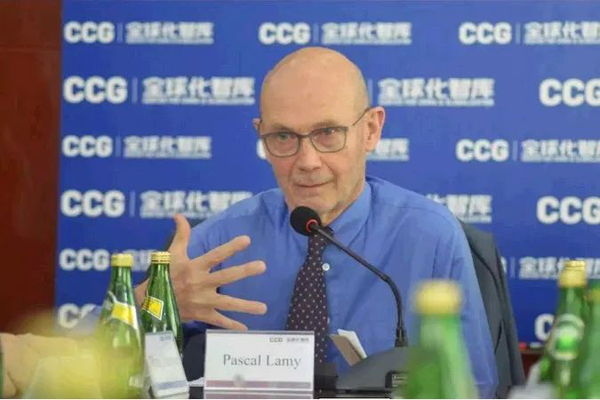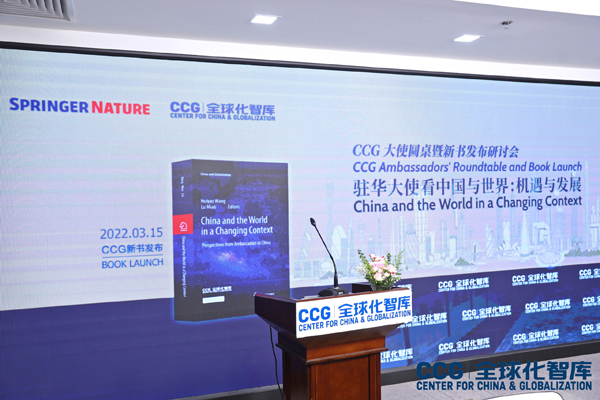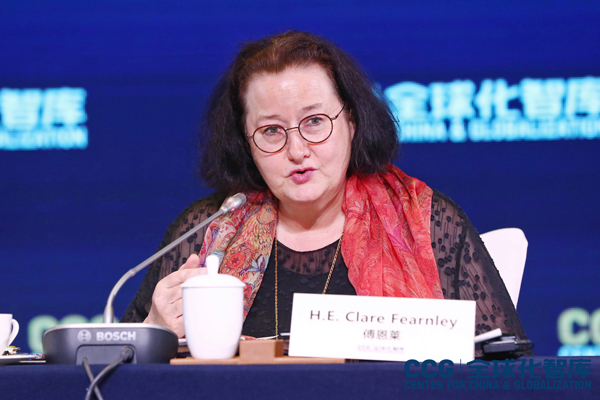Global governance, international organizations, regional cooperation and the Belt and Road Initiative (BRI) are key subjects of CCG's globalization research. As China's first think tank named and dedicated to globalization, CCG founded the China and Globalization Forum and contributes to international discussions related to globalization. It has organized seminars under themes such as WTO reform, multilateral governance, and the BRI. CCG was the first body to hold a BRI-themed event at the Munich Security Conference, a world-leading conference in the field of international security and governance.
Based on years of research in the field of globalization, CCG has published numerous research reports and books, including Win-Win International Cooperation and Path to Achievement of the Belt and Road, Globalization and Anti-Globalization and What’s Next for Globalization? Great Changes and China’s Proposed Approaches. The Handbook on China and Globalization published by Edward Elgar Publishing is one of the few books published in English by a Chinese think tank with an authoritative international academic publisher. Two of the CCG's initiatives were selected for inclusion in the first Paris Peace Forum, pioneering a new model for Chinese think tanks to fully participate in global governance and international cooperation. In addition, CCG has long-term cooperation with the WTO, UN, OECD, World Bank, IMF and many other international organizations, international think tanks and related institutions.
-

Harvey Dzodin: China’s human rights of health vs ‘US’ decay
After all the world has been through in 2020, the National Day Golden Week holiday gave the Chinese people an opportunity to breathe a collective sigh of relief and celebrate what, for all practical purposes, could be said to be the return to life as we knew it.
October 15 , 2020 -

Pascal Lamy: The Pitfalls, Principles and Priorities of Establishing a New Global Economic Order
“Some scholars call it the world legal economic order, while others describe it as the ‘rules-based’ global order. This essay contends that the world urgently needs a new economic order. While the world cannot, and should not, revolutionize the system that is currently in place, it does need to consider how it should be reorganized and subsequently replaced by a new order. It is essential that a new order serves not only the established world powers but a greater number of the newly emerging economies and nations. The development of this new order must ensure that it is representative of a world that is markedly different from the post Second World War ‘legal economic order’. Those creating the new order are dealing with new challenges that could not even be imagined at the end of the Second World War. Humanity now inhabits a world that is more interconnected, more interdependent and, in a word, more ‘global’. This connectivity is part and parcel of the process of globalization, which at this point cannot be avoided. China and other emerging powers will be greater contributors to the process of globalization if they follow fundamental principles that benefit all of mankind.”
April 12 , 2022 -

China and the World in a Changing Context-Perspectives from Ambassadors to China
China and the World in a Changing Context-Perspectives from Ambassadors to China is the latest volume in CCG’s “China and Globalization” series, which seeks to create a balanced global perspective by gathering the views of highly influential scholars, practitioners, and opinion leaders from around the world on issues of policy and governance.
April 14 , 2022 -

Ambassador of New Zealand to China and Mongolia: New Zealand – A Trade-Led Economic Recovery
For most of us, COVID-19 has been the greatest challenge to our societies and our economies in more than a generation. For New Zealand, part of the answer to rebuilding our economy lies in a trade-driven response achieved through international cooperation at every level.
May 06 , 2022 -

Lord Jim O’Neill: What Is the Right Way to Structure Global Health? The Case for Radical New Organisations and Thinking
If a solution to antibiotic abuse cannot be found, then by 2050, there could be as many as 10 million people a year dying from AMR-related illnesses. The COVID-19 pandemic has proved that there are massive economic and financial costs from global health threats when not met by fast robust actions.
May 09 , 2022


